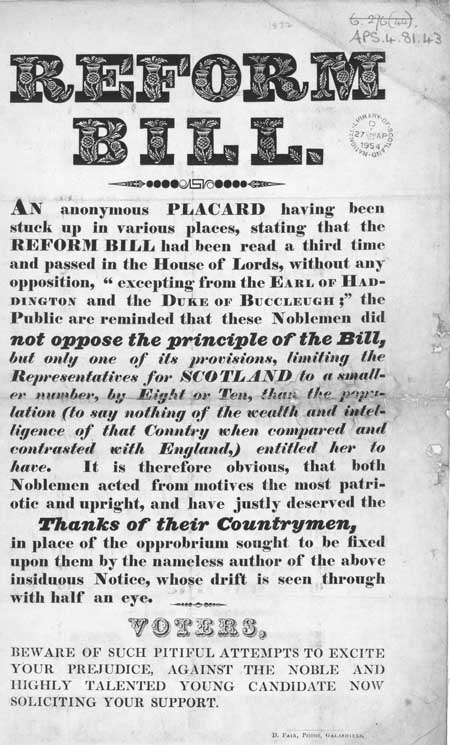Commentary
This public notice begins: 'AN anonymous PLACARD having been stuck up in various places, stating that the REFORM BILL had been read a third time and passed in the House of Lords, without any opposition . . .' It was published by D. Fair of Galashiels, probably in 1832. This broadside appears to have been printed on behalf of the Earl of Haddington and the Duke of Buccleuch, in reaction to an earlier notice that stated that these noblemen had opposed the passing of the Reform Bill. The notice shown here points out that the men did not oppose the Bill in principle, but rather opposed the disproportionately small parliamentary representation it granted Scotland. The broadside accuses the previous notice of being a deliberate attempt to prejudice the newly expanded electorate against the 'highly talented young candidate', who was probably Lord John Douglas Scott (1809-1860). The Parliamentary Reform Bill of 1832 increased the number of Scottish MPs from 45 to 53, and extended the vote in the burghs to households with an annual value of £10. This enlarged the voting base in Britain from 6 per cent of the population to 12 per cent, and inevitably led to competition between politicians and parties to win the support of the new voters. Among the tools used by the opposing sides were broadsides which argued the merits of the respective candidates. These were probably the forerunners of modern election campaign literature.
View Transcription | Download PDF Facsimile
|


